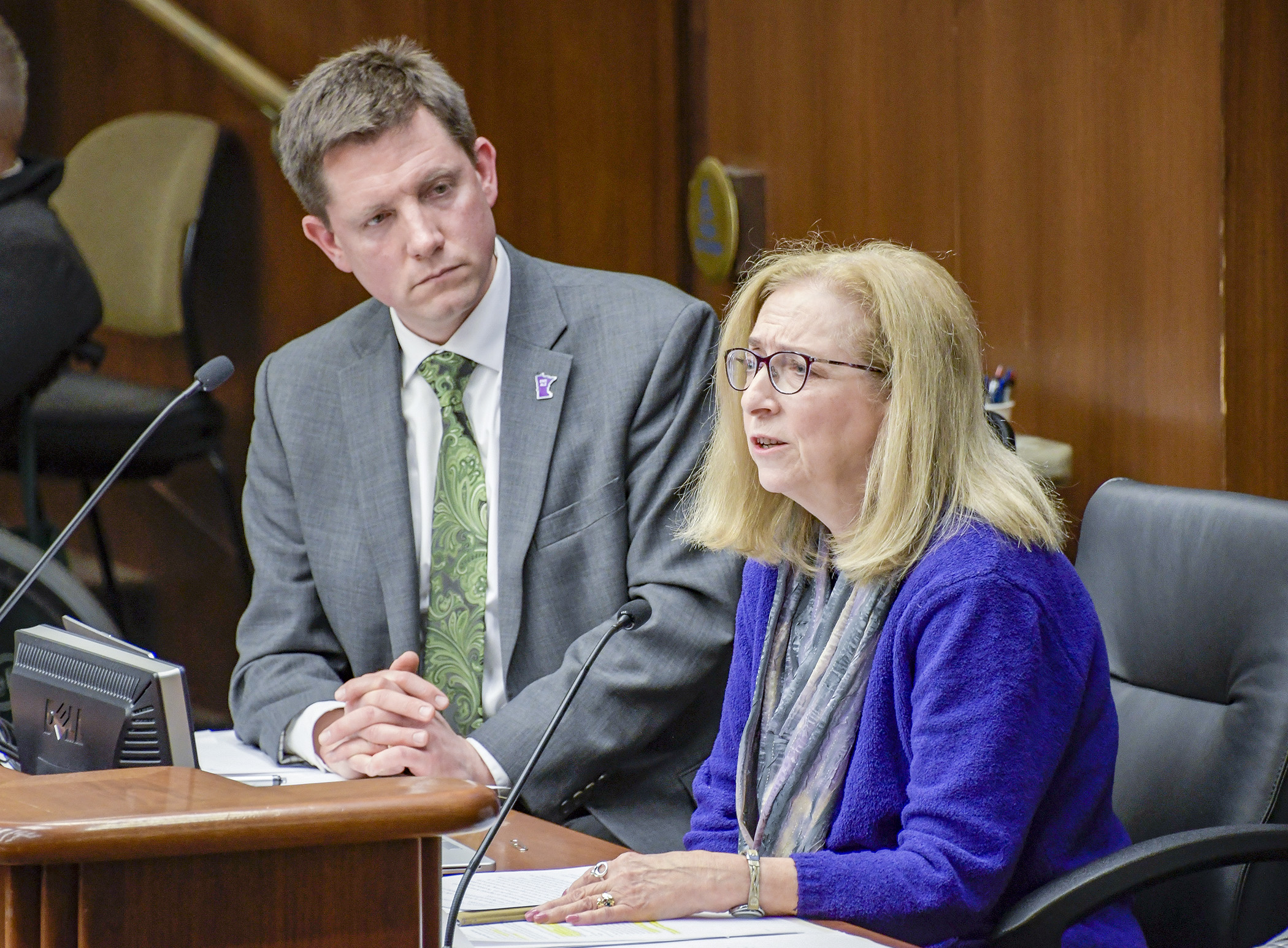Proposed program for people with dementia could increase support for caregivers

Randee Held Giblin quit her job to become a full-time caregiver for her husband, John, as the symptoms of his early-onset Alzheimer’s disease intensified.
She made sure that he was busy every day. They joined a choir for people with dementia, participated in clinical trials, went out to dinner, and saw movies, but his condition continued deteriorating and she began experiencing health problems tied to the constant stress and worry.
Eventually, Held Giblin enrolled her husband in a day program. His two-hour trial run provided the first two hours she had spent on her own in years.
“I was taking good care of my husband, but I wasn’t taking good care of myself,” she told the House Long-Term Care Division Monday. “If I hadn’t had some respite, I would never have been able to take care of him.”
HF3077, sponsored by Rep. Todd Lippert (DFL-Northfield), would try to increase access to respite care by creating a program to provide social, nonmedical, community-based services and activities for people with Alzheimer’s disease or other related dementias, giving their caregivers time to take care of themselves.
The bill was approved as amended and referred to the House Health and Human Services Finance Division.
A companion bill sponsored by Sen. Karin Housley (R-St. Marys Point), SF3176, awaits action by the Senate Family Care and Aging Committee.
The bill would appropriates $200,000 to support the program, augmenting federal funds, Lippert said.
Funding would be allocated to area agencies by the Board on Aging. Because the program would be administered through existing systems, no increased administrative costs are expected, he said.
The bill would also:
- increase the monthly cap on costs for essential community supports from $400 to $600 per person; and
- add respite care and companion services to the state’s list of essential community supports.
Lippert’s amendment would update the program’s goals to include the provision of training and education to respite caregivers and volunteers; give priority to people in high need of respite services; and make technical changes.
Related Articles
Search Session Daily
Advanced Search OptionsPriority Dailies
Ways and Means Committee OKs proposed $512 million supplemental budget on party-line vote
By Mike Cook Meeting more needs or fiscal irresponsibility is one way to sum up the differences among the two parties on a supplemental spending package a year after a $72 billion state budg...
Meeting more needs or fiscal irresponsibility is one way to sum up the differences among the two parties on a supplemental spending package a year after a $72 billion state budg...
Minnesota’s projected budget surplus balloons to $3.7 billion, but fiscal pressure still looms
By Rob Hubbard Just as Minnesota has experienced a warmer winter than usual, so has the state’s budget outlook warmed over the past few months.
On Thursday, Minnesota Management and Budget...
Just as Minnesota has experienced a warmer winter than usual, so has the state’s budget outlook warmed over the past few months.
On Thursday, Minnesota Management and Budget...